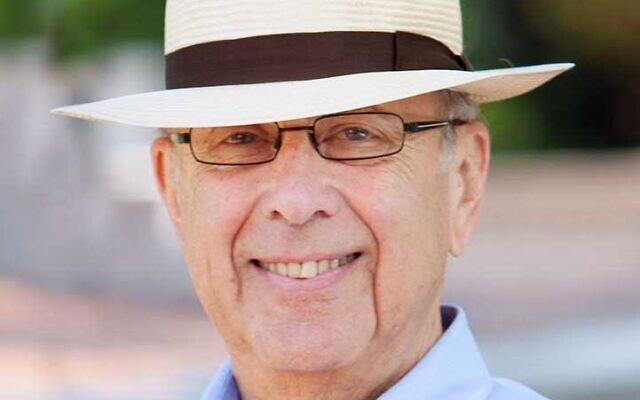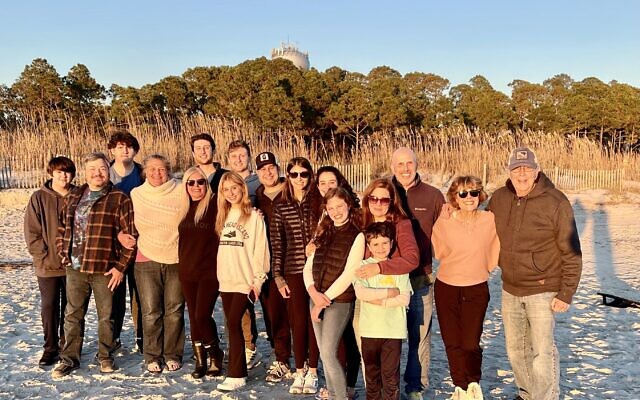Dr. Duke’s Recipe for Healthy Family Traditions
Emory professor Marshall Duke speaks to the importance of family rituals and passing on generational stories…even during the pandemic.
After 37 years with the Atlanta Journal-Constitution and now with the AJT, , Jaffe’s focus is lifestyle, art, dining, fashion, and community events with emphasis on Jewish movers and shakers.
Bruce Feiler, in his bestselling book “The Secrets of Happy Families,” cites Emory psychology professor Marshall P. Duke’s research and personal experience in empowering more resilient children through family traditions.
Duke’s body of work outlines specifics like the ritual of Shabbat dinners, reoccurring family vacation spots and passing on age-appropriate stories of overcoming the ups and downs of life. “Family stories about a ‘wayward uncle’ or thriving after economic troubles or a pandemic, teach lessons,” Duke said. “All families have these ‘lessons’ and they are often transmitted by grandparents. Because some family stories are too painful, some elders keep these behind protective ‘walls of silence.’ Often fragmentary, such stories need to be told at the right age, of course. Children who develop an ‘intergenerational self’ based on stories they have heard about their ancestors are less likely to get involved in drugs and crime. Not only do children develop a sense of ownership of their family narratives, but they also develop a responsibility for carrying and transmitting them.”
Duke delineates three common “shapes” when it comes to family narratives:
Ascending: “When your grandparents came here, they had nothing and rose up, etc.”
Descending: “Our family used to be well off, but then things happened — the dotcom bubble broke, a tragic event and now …”
Oscillating (best case): “There are good times and bad times in our family story. We overcame those we could change and have learned to accept those we could not….”

Duke is a proponent of personal agency. “We learn that we can affect our world by hearing how people important to us have done so,” he said. “Even when we never knew our grandparents or great-grandparents, we develop ownership of their stories; their stories guide our lives through their behaviors and values. We often develop the sense that we actually experienced what they did.”
Citing his own family experience, Duke recalled, “I feel nostalgic about the smell of Nathan’s hotdogs at Coney Island, and I ‘remember’ what it was like on Ellis Island in 1904, even though I was never in either place.”
In terms of the recent pandemic, Duke said that “Children woke up one day and the world changed. Things were ok yesterday, now they are not.” He recommends that families keep records of what happened during the pandemic because they will ultimately become part of future family stories of adversity and resilience.
“Other generations have dealt with stress — 9/11, polio, the Spanish flu — and came out of it,” he continued. “Look at the miracle of the vaccine. In the pandemic, some good things also happened via Zoom — rising above, like ‘attending’ sad as well as happy events from across the world: being at funerals, weddings and b’nai mitzvot; joining and supporting people at shiva gatherings; establishing virtual Shabbatot or even a ‘Cocktails with Cousins hour,’ allowing us to be with loved ones, even if only virtually. The story is this: ‘We are living this history. We will get through it! Our family has done it before, and we will do it again.’”
At this juncture in his career, Duke is thinking about writing a book that draws on the understanding of human behavior he’s gained over 52 years of watching the field of psychology evolve. For example, why do people do what they do? Duke believes in multicausality.
“Think of the mind as a building with many levels,” he said, “a biological/neuroscience floor, a behavioral floor, a family level, a cultural floor, etc.” He has come to believe that there will never be a single explanation for behavior. “I want to focus on multicausality; family influence is surely high on the list.”
In mid-2022, Duke will retire from his full-time position at Emory and segue into part-time counseling, to “scale down to what is needed.” Outside of work, Duke plays folk guitar, especially “old folk” music from the ’50s, ’60s and ’70s, that is, when he and his wife, Sara, are not planning activities for their nine grandchildren.
Daughter Sharon Estroff lovingly recalled, “Thanks to my father’s work on the importance of ritual and traditions, my childhood, and later my own children’s childhoods, were always bursting with tradition! As a kid, I used to roll my eyes about all the traditions, but as an adult and mom of four, they are among my most cherished possessions.”




comments